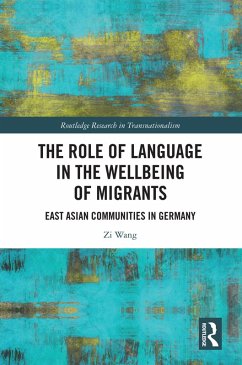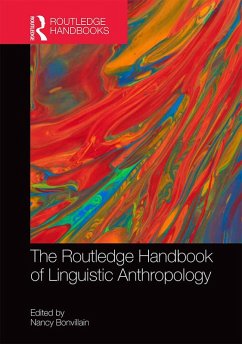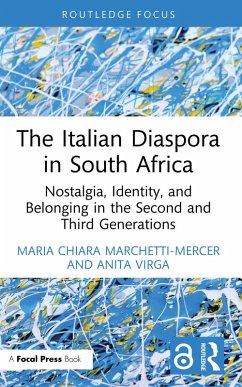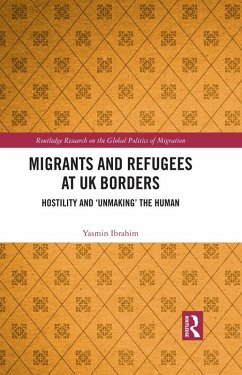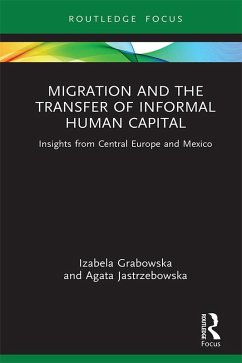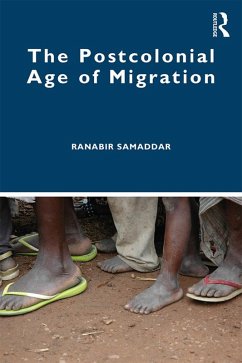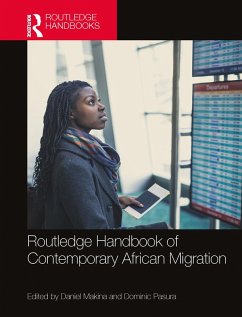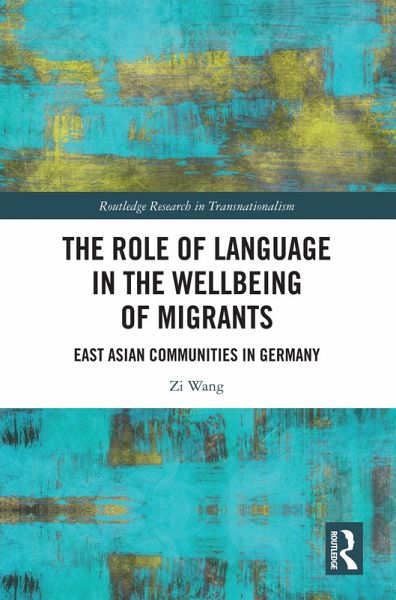
The Role of Language in the Wellbeing of Migrants (eBook, PDF)
East Asian Communities in Germany
Versandkostenfrei!
Sofort per Download lieferbar
41,95 €
inkl. MwSt.
Weitere Ausgaben:

PAYBACK Punkte
21 °P sammeln!
This book examines the correlations between language behaviour and happiness amongst communities of migrants, and addresses the overarching question of whether language can affect wellbeing.Zi Wang takes an innovative look at migration and wellbeing by examining the crucial role language - a quintessential part of the international migration experience - plays in migrants' wellbeing. Drawing on case studies from Chinese and Japanese-speaking communities in Germany, as well as secondary survey data on the general migrant population, Wang shows that proficiency in both host country and heritage ...
This book examines the correlations between language behaviour and happiness amongst communities of migrants, and addresses the overarching question of whether language can affect wellbeing.
Zi Wang takes an innovative look at migration and wellbeing by examining the crucial role language - a quintessential part of the international migration experience - plays in migrants' wellbeing. Drawing on case studies from Chinese and Japanese-speaking communities in Germany, as well as secondary survey data on the general migrant population, Wang shows that proficiency in both host country and heritage languages is associated with robust enhancements of migrants' subjective wellbeing. He argues that acquisition of host country language and the preservation and promotion of heritage culture should not be portrayed as a zero-sum game by stakeholders in host societies. Instead, we ought to consider the unique experiences of migrants in order to fully comprehend the ways in which they experience, evaluate, and pursue happiness in a host society.
Presenting a novel approach to the study of migrants' wellbeing, this book will be of interest to scholars and students of area studies, education, international migration, sociology of language, and wellbeing research.
Zi Wang takes an innovative look at migration and wellbeing by examining the crucial role language - a quintessential part of the international migration experience - plays in migrants' wellbeing. Drawing on case studies from Chinese and Japanese-speaking communities in Germany, as well as secondary survey data on the general migrant population, Wang shows that proficiency in both host country and heritage languages is associated with robust enhancements of migrants' subjective wellbeing. He argues that acquisition of host country language and the preservation and promotion of heritage culture should not be portrayed as a zero-sum game by stakeholders in host societies. Instead, we ought to consider the unique experiences of migrants in order to fully comprehend the ways in which they experience, evaluate, and pursue happiness in a host society.
Presenting a novel approach to the study of migrants' wellbeing, this book will be of interest to scholars and students of area studies, education, international migration, sociology of language, and wellbeing research.
Dieser Download kann aus rechtlichen Gründen nur mit Rechnungsadresse in A, B, BG, CY, CZ, D, DK, EW, E, FIN, F, GR, HR, H, IRL, I, LT, L, LR, M, NL, PL, P, R, S, SLO, SK ausgeliefert werden.




